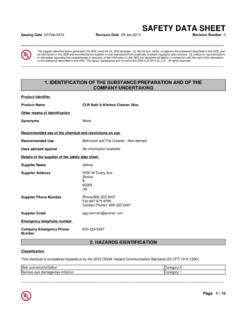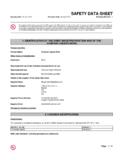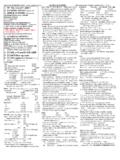Transcription of GECAP
1 GECAP of the Georgia Tech Research Institute is a voluntary, non-regulatory environmental compliance program funded by the Georgia Legislature through the University System of Used Lead-Acid BatteriesLead-acid batteries are considered hazardous because they contain sulfuric acid and lead. Used lead-acid batteries must be properly stored so that the acid they contain does not spill or leak out and contaminate soils or water. These batteries are found in automobiles and forklifts. This information does not pertain to other batteries, such as flashlight and rechargeable can I store lead-acid batteries?Stack batteries upright (no more than four batteries high) so that the acid will not leak out of the top vent holes. You can place the batteries on pallets. Used batteries can be stored in either indoor storage or outdoor storage.
2 However, outdoor storage may require covering and diking to prevent stormwater is the difference between indoor and outdoor storage?Indoor storage means storage in a building having at least three walls and a roof and is permanently attached to a masonry or other floor that lies directly on the ground. Floorless storage sheds, pole barns, and semi-trailers are considered outdoor storage areas. Outdoor storage has more requirements; therefore, it is generally easier to comply with the rules for indoor storage areas. Also, outdoor storage poses more risk of frozen batteries that crack and leak. What are the storage requirements for each?Indoor and outdoor storage areas have some requirements in common. The floor of the storage area must be made of a material, such as asphalt, that won t be corroded by battery acid.
3 You can apply an acid-resistant coating, such as an epoxy, to a concrete floor to prevent corrosion from spilled acid. You must have some form of acid-resistant curbing that is capable of holding any liquids around the battery storage area. For smaller storage areas, there are several alternatives, such as prefabricated pans for leak collection: Lay down an asphalt curb capable of containing liquids around the storage area. Construct a simple wooden frame and lay it on the floor. Over this frame, lay a single 20- to 40-mil-thick sheet of acid-resistant polyethylene, polypropylene, or polyvinyl chloride. The sheet must overlap the frame so it will contain any battery acid that may leak. If only a few batteries are to be stored, you can use a durable acid-resistant tub to contain any leaked acid.
4 In the storage area, do not have floor drains that lead outdoors or connect to storm or sanitary sewer systems or septic tanks. Inspect batteries regularly for cracks or leaks. This inspection should be made at least weekly, and more frequently if the batteries have been exposed to freezing temperatures. Place cracked and leaking batteries in sturdy, acid-resistant, leakproof sealable containers and keep the containers closed within the storage area. This prevents further leakage into the storage area. One way to do this is to place single leaking batteries in sealable five-gallon polypropylene pails. Label containers and/or storage areas as Used Batteries. Outdoor storage areas carry additional requirements: You must construct the outdoor storage area so Georgia Environmental Compliance Assistance Program GECAP that it is resistant to liquids, such as precipitation or drainage.
5 For example, you can use a protective tin, wood, canvas, or plastic roof. Remove spilled or leaked acid often enough that there is no overflow from the curbed storage area and include a sump or depression to help collect any spilled should I do if the acid from the battery spills or leaks?Handle the spilled acid as a hazardous waste because it is corrosive and may contain toxic levels of lead. Report all spills that overflow or escape from the storage area to the Georgia Department of Resource Emergency Response Center at 800-241-4113 or 404-656-4300 and the National Response Center (NRC) at 800-424-8802. The call to the NRC may not be necessary since the amount of lead and sulfuric acid spilled may not exceed reportable quantities, but a call is still spills under two gallons, neutralize the acid using cement, lime, or other caustic.
6 Use very dilute lime or caustic since violent reactions can occur. Litmus paper can be used to determine if the acid is neutralized. You may discharge neutralized solutions to the sewer system only if the system connects with the local sewage treatment plant and if the plant operator has approved of the discharge. If the operator does not approve, the material must be collected and disposed of as hazardous waste. Do not put acid solutions into septic systems or storm quantities of neutralized solids that contain no free liquids may be trashed or taken to a sanitary landfill. How do I dispose of my used lead-acid batteries?In Georgia, lead-acid batteries are specifically prohibited from disposal into a solid waste landfill. Waste lead-acid batteries must be recycled or disposed of as a hazardous waste because they contain sulfuric acid (corrosive) and lead (toxic).
7 However, you do not have to count lead-acid batteries as a hazardous waste provided the batteries are being properly managed and are recycled. If you dispose of batteries as hazardous waste, you need to keep a copy of the hazardous waste manifest. If you recycle your batteries, it is recommended that you also maintain written records of most situations, if you purchase a battery, the seller must accept your old battery. If you have old batteries, contact any auto parts supplier for the name of a reclaimer. There are several categories of battery handlers. Generators and collectors either use their own lead-acid batteries and therefore generate their own waste or they take in used batteries from private individuals or businesses. Examples include auto parts stores, retail and discount stores, service stations, new and used car dealers and other vehicle dealers, battery haulers, scrap dealers, salvage yards, and landfills.
8 Reclaimers process used lead-acid batteries. Battery-breaking operations and secondary lead smelters are examples of reclaimers. Reclaimers are subject to additional hazardous waste regulations not described in this Tech Guide, including a requirement to obtain a full hazardous waste storage facility permit. For More InformationContact GECAP personnel at 404-407-8082 or send an email to Paige Rohrig at more information, contact GECAP :Georgia Tech Research InstituteAtlanta, Georgia 30332 0837404-407-8082 onrecycled paperUpdated 7/2002

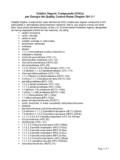

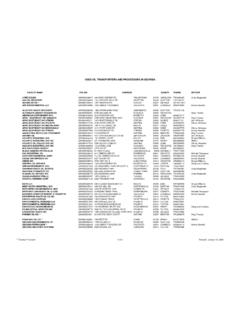
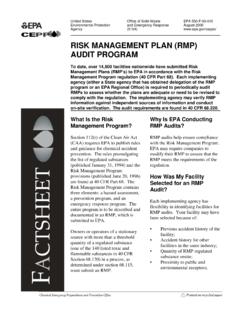

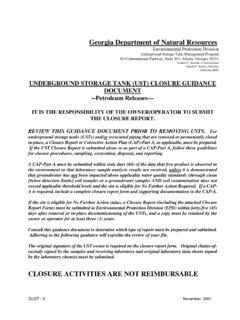
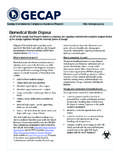
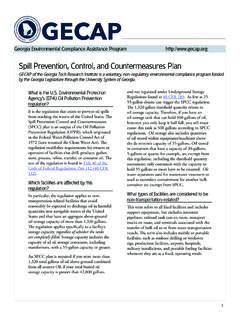
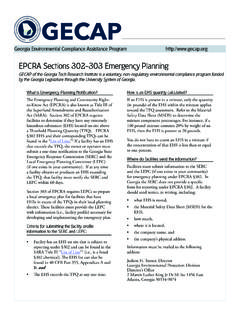


![Crown Hydro Term Sheet[1]](/cache/preview/8/e/d/7/2/7/4/9/thumb-8ed727496d7da8b9fd30399247e471a5.jpg)
